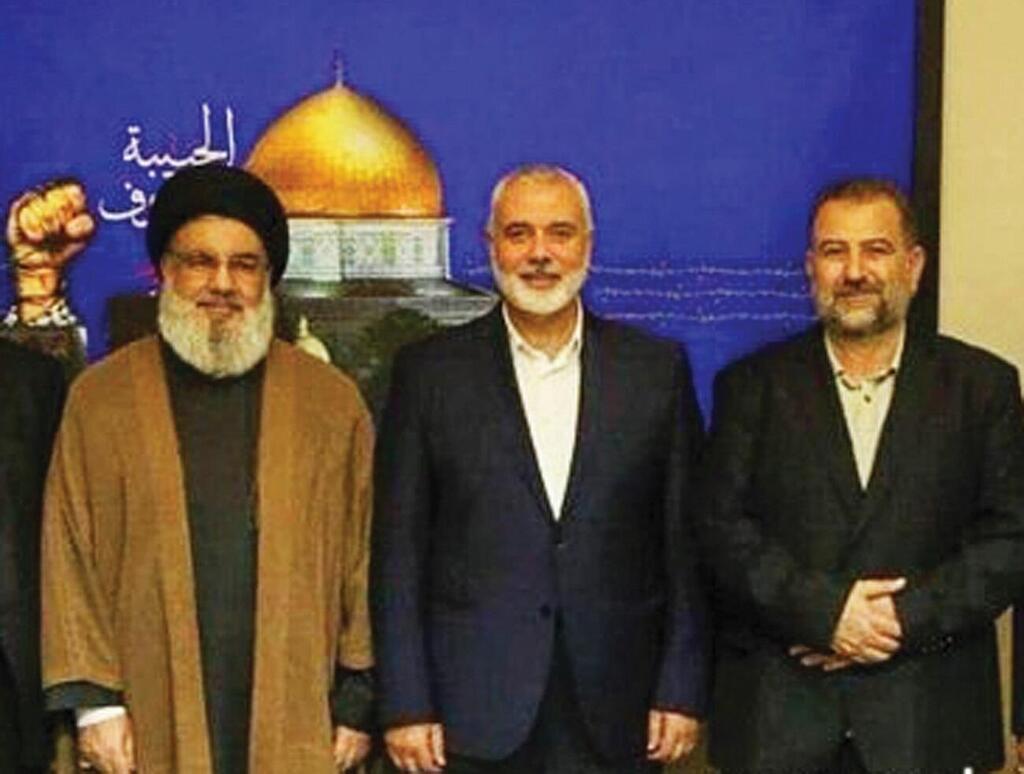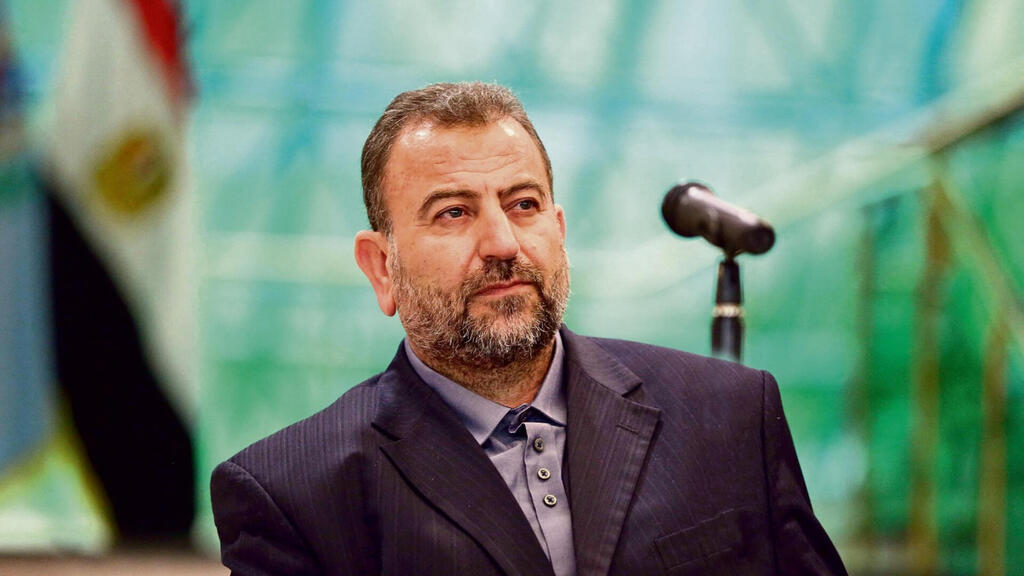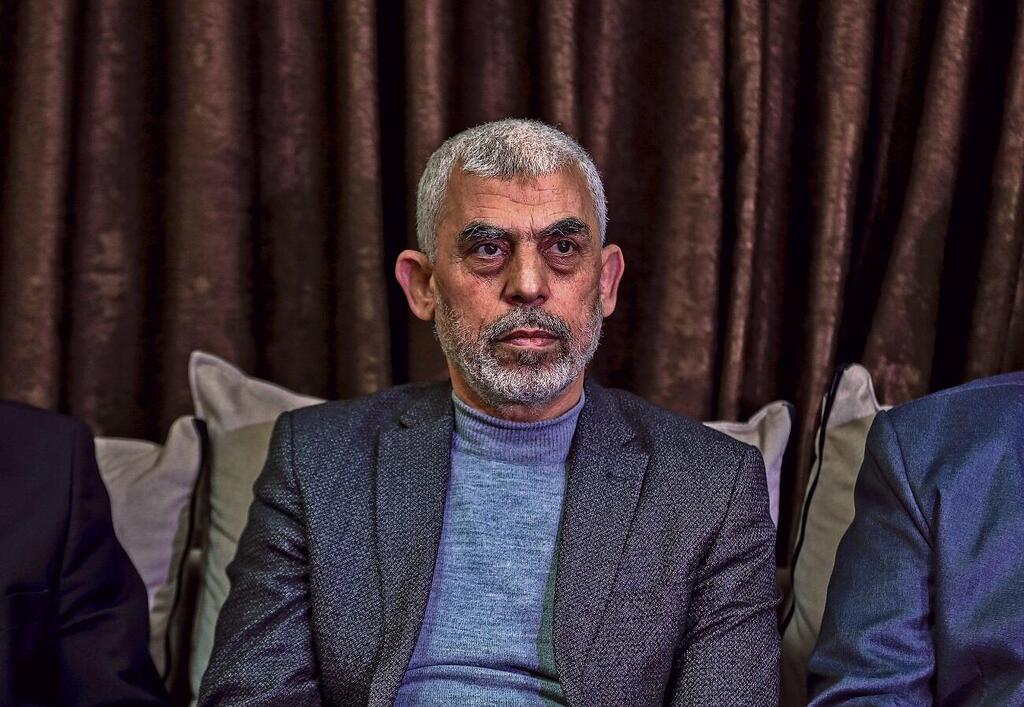The assassination of Saleh al-Arouri deals a severe blow to Hamas' ability to conduct operations against Israel in the West Bank, as well as to carry out rocket fire and attacks from southern Lebanon and Syria.
More stories:
Al-Arouri was the coordinator and initiator of terror and guerrilla warfare against Israel in these arenas since his release from Israeli prison in March 2010. Over the 13 years since then, he accumulated political power and status within the Hamas ranks, thanks to his ability to initiate, provoke and plan actions against Israel from the places he resided, such as Turkey, Syria and Lebanon.
Al-Arouri was expelled several times from the countries of refuge where he resided, but his murderous initiatives kept him in high regard in the organization.
Recently, he was noted for his connections with Hezbollah Secretary-General Hassan Nasrallah, and he even made Hamas groups in the refugee camps of southern Lebanon, around Tyre and Sidon, available to the Lebanese terrorist organization. The expected scenario now is that following the assassination, these groups will fire at Israel.
Indeed, Saleh al-Arouri turned Hamas into a "proxy" for Hezbollah, with Nasrallah preferring not to confront Israel directly and instead having Hamas operatives do the work for him. This indeed occurred in several instances of rocket fire toward Israel from Lebanese territory in 2022-23.
Nasrallah even granted al-Arouri and his men the status of a Palestinian organization with special ties to the Lebanese organization, which allowed him to locate his office and residence in the heart of Dahieh in Beirut, where the offices and headquarters of both Hamas and Nasrallah himself are situated.
3 View gallery


Hezbollah Secretary-General Hassan Nasrallah, Hamas leader Ismail Haniyeh and his deputy Saleh al-Arouri
It's important to remember that al-Arouri was a Sunni Muslim, while Hezbollah is a Shi'a Muslim organization. Therefore, the close relations he forged with the leadership of Hezbollah, and the fact that he turned his organization's operatives in Lebanon and Syria into proxies for Hezbollah, gave him, according to the rules of engagement between the IDF and Hezbollah for the last six years, immunity from being targeted while residing in the military and political heart of the Lebanese organization.
However, after October 7, the rules of the game changed and al-Arouri, despite taking refuge in the shadows and the heart of Hezbollah's territory in Beirut, became a target. This was due to the actions he initiated against Israel, mainly in the West Bank but also from Lebanese territory, and because of his senior status in the Hamas organization, which Israel announced it intended to target its senior members wherever they are.
The immediate result of al-Arouri’s assassination will likely be a sense of persecution among the political leaders of Hamas who are currently in Qatar, including the head of the organization's political bureau, Ismail Haniyeh, for whom al-Arouri served as a deputy, Musa Abu Marzook who was replaced by al-Arouri, and other senior members of the organization residing outside the Gaza Strip.
Yahya Sinwar, the leader of Hamas in Gaza, probably won't be too distressed about al-Arouri's elimination, considering he was his bitter political rival competing for the organization's leadership.
However, the assassination might impact Hamas' willingness to engage in a prisoner exchange deal. It's even possible that the political leadership of the organization, residing in Qatar and also communicating with Egypt, might press Sinwar to pursue a prisoner exchange deal, one of the terms of which could be immunity for the Hamas leadership from Israeli assassinations. The Hamas leadership might demand such a clause in a prisoner release deal, and Sinwar himself might have an interest in an immunity clause from assassination.
Hamas has already responded to the assassination by freezing the negotiations for a hostage deal, but Israel is not perturbed by this and assesses that the elimination of al-Arouri will ultimately assist in advancing the talks, as it increases military pressure on Hamas
The IDF has heightened its alertness, particularly of its warning systems, and is prepared to alter the situation in the rear if Hezbollah decides to respond to the assassination. Hezbollah will likely threaten Israel with retaliatory action, as the killing of al-Arouri, who was under Nasrallah's protection and close to the Iranians, severely damages the organization's prestige and its leadership's sense of deterring Israel.
Now it's clear that what was valid up to October 7 no longer applies to the mutual deterrence between Israel and Hezbollah, which has deteriorated in both directions.
It's reasonable to assume that Hezbollah will not undertake drastic action but will try to carry out an operation from southern Lebanon. If it succeeds in killing Israeli soldiers or civilians or causes significant damage in Israeli territory, it will declare it as a vengeful retaliation for the assassination of al-Arouri.
However, Hezbollah won’t want to upset the apple cart and escalate to a full-scale war. It's important to remember that the IDF has targeted more than ten Hamas operatives who recently acted under Hezbollah's direction, firing rockets and mortars into Israel and even attempting infiltrations.
Hezbollah did not include them in the list of the fallen fighters it published, so it may also silently overlook the assassination of al-Arouri. These are the two likely scenarios regarding Hezbollah's response to the assassination.
Meanwhile, Hamas will try to avenge al-Arouri’s assassination by firing the remaining rockets in Gaza toward central Israel. We may see several attempts at attacks in the West Bank and perhaps even abroad, in places where Hamas has operatives capable of carrying out such actions, such as in Turkey.
In any case, the assassination represents a severe moral blow to Hamas, and it's quite reasonable to assume that this will cause not only the Hamas terrorists still fighting in the Gaza Strip to rethink their strategy but also Yahya Sinwar, who now understands more than ever that his survival is contingent on how he plays the hostage card he holds. This may have been what the one who ordered the assassination of al-Arouri intended to achieve when the intelligence opportunity arose and matured.




